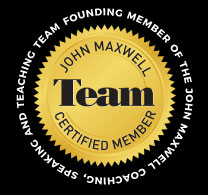Principled Leadership
Adolf Hitler came to office promising the German people a return to their former glory as a nation. Yet, once he was führer, his distorted values and love for self-gratification grew increasingly clear as he persecuted Germany’s citizens for his own selfish purposes.
In every area of life – government, business, religion, media, education and so forth – there are people who aspire to positions of leadership and influence motivated by selfish ambition. They may not have to go to the extreme of persecuting or murdering people, but their selfish ambition causes other types of human and social destruction. Think about it this way my friends:
– How might tax-paying citizens be better off if various corporate leaders had not participated in financial impropriety? How would the lives of these executives, their families and their employees be different? How might the financial markets be different today?
– How much would the lives of Kenyans in drought-stricken areas be different if leaders hadn’t lined their pockets with foreign aid rather than giving it to those who needed it?
– How might the emotional mindset of many children be healthier today if their parents had thought more about them than their own selfish pursuits?
– How might the lives of millions of people be free from guilt, depression and even disease if they had decided not to compromise their standards for temporary pleasure or gain?
True leadership cannot be divorced from the basic qualities that produce good, sound character. Leadership involves the total person and cannot be relegated to a “professional compartment” of our lives.
Do you ever look at your organization’s C-suite or read about the things high-profile people say in the news and wonder where the principled leaders are? They leave observers and stakeholders asking: do you have to leave your ethics and morals behind to become successful?
The answer is no and there is hope for change. We have the power to stop accepting unprincipled behavior by first raising our own moral compass. The time is ripe to acknowledge that principled leadership and high-performance can and do go hand in hand. In spite of what some might believe, you can be principled and lead successfully.
Triumph and victory involve hard work and honest effort. As a principled leader, you must acquire deep knowledge and communicate the right messages to the right people so they willingly ‘enlist’. Then, they will want to support and follow you. People want to follow principled leaders who share a hopeful and promising vision of a brighter future and who orient efforts toward noble goals.
So how can you become a more principled leader?
1. Discipline.
Principled and high-performing leaders are disciplined people. They put their personal health, well-being and state of mind on their priority list, and strive to perfect their systems and routines. Successful leaders are disciplined at work and at home. They are fueled by the mindset that they want to do their very best, so they prioritize a disciplined approach in most aspects of life. They cultivate healthy habits that support their vibrancy so they continue to operate as high-performers that engage and inspire others.
Such habits may include:
i. Getting a full night’s rest, often waking up early and going to bed early.
ii. Consciously working on knowing themselves.
iii. Rarely, if ever, shifting blame onto others for their mistakes and misfortunes, opting instead to tune into why they’re having an off day or week and focusing on resetting.
iv. Working hard and expecting the same of their teams.
2. Self-Study.
A principled leader reflects on his or her own actions, intentions and vision. With a beginner’s mind, principled and self-reflective leaders are humble and know they don’t have all the answers all the time. They are consummate learners eager to do better and to learn more about themselves and others. With humility, they listen to the views and opinions of others and feed their base of knowledge. Knowing that perfection is an illusion, they open themselves up to others by sharing their personal successes and failures to serve as teaching moments. They see mistakes as opportunities to learn and develop themselves.
3. Orientation.
Armed with vision and goals, principled leaders consider that all acts, works, and even thoughts should be oriented toward benefiting something greater than themselves. Their internal compass points towards improvement for all. It offers them meaning and purpose and satisfies the inner sense that knows that we are all human and we are all in this together.
When performed as a triad, discipline, self-study and orientation mean successful and principled leaders show up and do their very best all the time. These qualities invite a perpetual mode of self-betterment that keeps each leader humble and growing, all while directing and measuring their regular and small efforts toward leaving the world a better place where all humans have an opportunity to thrive.
If you would like to learn more about true leadership follow us on Facebook and YouTube. Additionally, browse our website and see what services we have to offer and then reach out to us. I believe that you as a leader can leave the world better than you found it.
Recent Posts
-
IT’S NOT MY FAULT!
-
SQUEEZED IN THE MOLD
-
Growth Pains
-
Transformation
-
End of Myself!
-
At my “Wits’ End”!
-
I LOVE YOU – FROM DADDY
-
BUSY? MAKE TIME FOR WHAT MATTERS!
-
BAD-MOUTHING!
-
Leadership 101: Demands of Leadership
-
LET’S TALK ABOUT SEX!
-
I AM BROKEN!
-
Friends Forever
-
START WITH GRATITUDE
-
Life’s Secret Weapon
-
Excuses, Excuses, Excuses = Mediocrity!
-
What Choices Have You Made?
-
Wait on God
-
Find Yourself!
-
What’s in It For Me?


